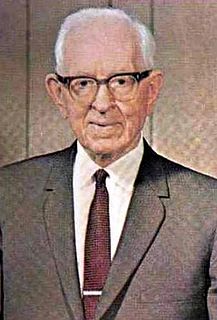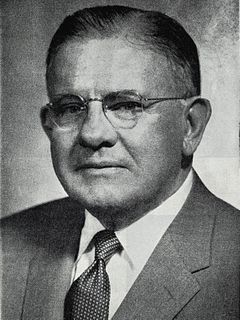A Quote by Frederic G. Kenyon
The New Testament was not produced as a single work issued by an authoritative Church for the instruction of its members. The four Gospels were composed in different times and places over perhaps a third of a century, and for a time circulated separately among a number of other narratives of our Lord's life (of which the newly discovered fragment of an unknown gospel may have been one).
Quote Topics
Among
Authoritative
Been
Century
Church
Composed
Different
Different Times
Discovered
Four
Fragment
Gospel
Gospels
Instruction
Life
Lord
May
Members
Narratives
New
New Testament
Number
Other
Our
Our Lord
Over
Perhaps
Places
Produced
Separately
Single
Testament
Third
Time
Times
Unknown
Were
Which
Work
Related Quotes
All archaeologists in Israel and Palestine make use of the New Testament Gospels. They do this because the Gospels exhibit verisimilitude. In short, the Gospels help archaeologists know where to dig and they help archaeologists understand what they unearth. The 2nd-century Gospels and Gospel-like writings rarely exhibit verisimilitude, so archaeologists rarely appeal to them.
Procrastination, as it may be applied to Gospel principles, is the thief of eternal life - which is life in the presence of the Father and the Son. There are many among us, even members of the Church, who feel that there is no need for haste in the observance of Gospel principles and the keeping of the commandments.
The trouble with Christianity was that by about 150, there were hardly any Jews left in the Christian church, and so from that time until the last part of the twentieth century, the only people reading the gospels and interpreting the gospels and writing commentaries on the gospels were gentiles who were simply ignorant of the Jewish background, and I just thought they were prejudiced.
If we compare the present state of the New Testament text with that of any other ancient writing, we must... declare it to be marvelously correct. Such has been the care with which the New Testament has been copied - a care which has doubtless grown out of true reverence for its holy words.... The New Testament is unrivaled among ancient writings in the purity of its test as actually transmitted and kept in use.
As members of the Lord's Church, we must take missionary work more seriously. The Lord's commission to 'preach the gospel to every creature' (Mark 16:15) will never change in our dispensation. We have been greatly blessed with the material means, the technology, and an inspired message to bring the gospel to all men. More is expected of us than any previous generation. Where 'much is given much is required.' (D&C 82:3.)
In medieval times, the Church used to sell 'indulgences' for money. This amounted to paying for some number of days' remission from purgatory, and the Church literally (and with breathtaking presumption) issued signed certificates specifying the number of days off that had been purchased. . . . And of all its money-making rip-offs, the selling of indulgences must surely rank among the greatest con tricks in history. . . .
Every home is a house of learning either for good or otherwise. Family members may learn to be obedient, honest, industrious, self-reliant, and faithful in living gospel principles, or they may learn something else. Learning the gospel in the homes of Church members should be centered on the scriptures and on the words of the latter-day prophets. The Lord has commanded parents to teach their children.
The Church was resolved to have a New Testament, and as, after the lapse of more than three hundred years, no handwriting could be proved or disproved, the Church, which like former impostors had then gotten possession of the State, had everything its own way. It invented creeds, such as that called the Apostle's Creed, the Nicean Creed, the Athanasian Creed, and out of the loads of rubbish that were presented it voted four to be Gospels, and others to be Epistles, as we now find them arranged.
All we can say is that, as the result of a process which went on from the fourth century to about the eighth, a standard type of text was produced, which is found in the vast majority of the manuscripts that have come down to us. At least ninety-six per cent of the extant manuscripts of the Greek New Testament are later than the eighth century; and of those only a handful preserve traces of the other types of text which were in existence before the adoption of the standard text, and out of which it was created.
Only with great care. For thousands, carols will be their only link with a church. At the same time, sentimentality is perhaps the single most dangerous feature of our Church and culture-and the sentimental air is never thicker than at Christmas. The Incarnation is messy, dirty, and resonates with the crucifixion. We need a new wave of carol writing that can gradually swill out the nonsense and catch the piercing, joy-through-pain refrains of the New Testament.































